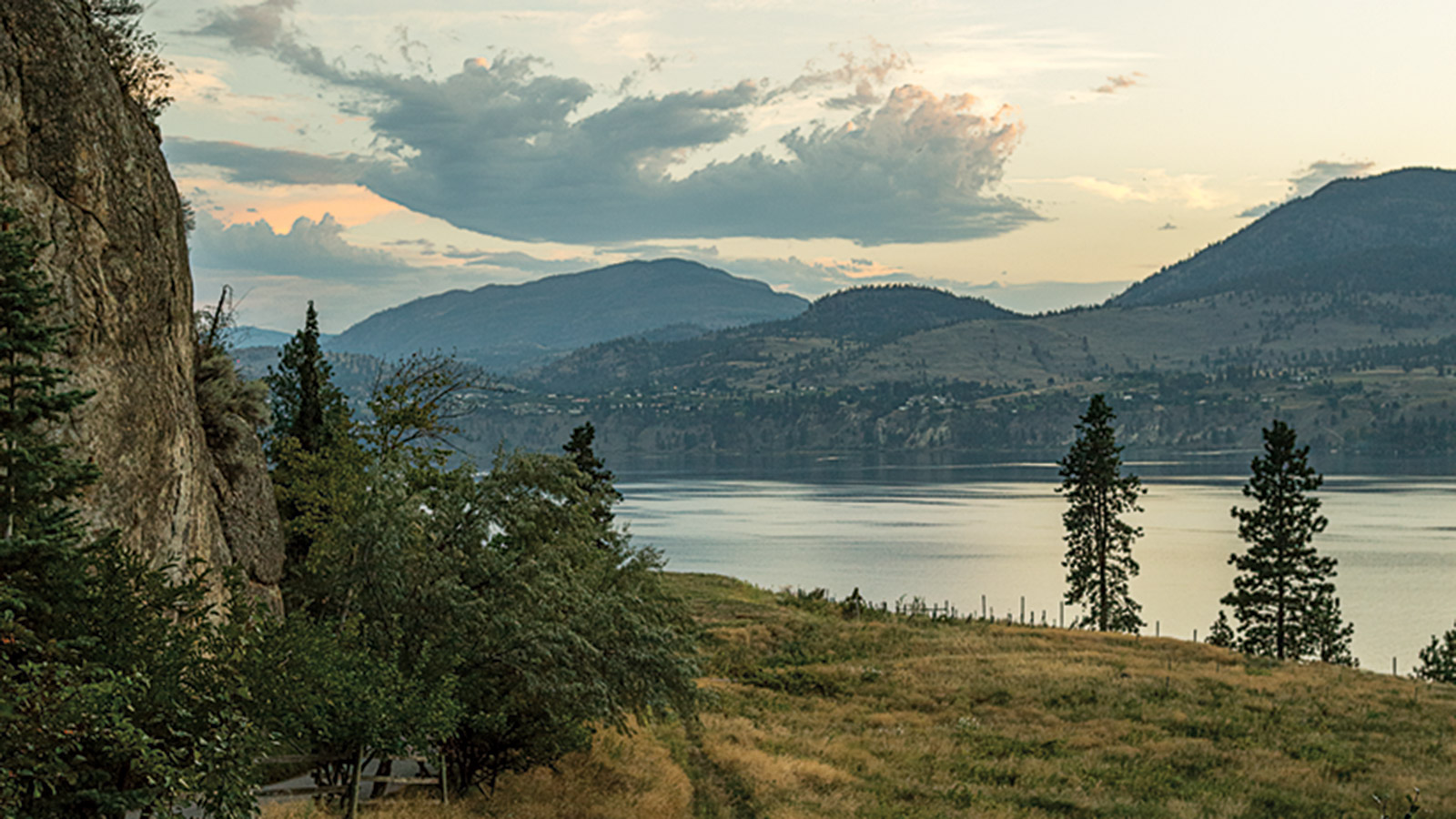Dinner with a view
Joy Road Catering in the Okanagan goes that extra mile to create exquisite dishes from food grown as close to the grapes as you can get
Photograph by John Cullen
Share

As the 2014 Wine in Canada guide makes its debut, Maclean’s dips into the archives to publish some of the best of the 2013 edition online.
Cameron Smith and Dana Ewart have worked at some of the top restaurants in Canada, like the former Avalon restaurant in Toronto and Toque! in Montreal, but in their eighth season as owners of Joy Road Catering in Penticton, B.C., they relish the freedom of working without the overhead, literally and figuratively, of a restaurant. In summer they and their staff roam Okanagan wine country serving up “cuisine du terroir” at open-air events, including a twice-weekly gig overlooking Skaha Lake at God’s Mountain Estate.
People go to restaurants for many reasons, but the tourists and locals served by Joy Road at its alfresco events are foodies and wine lovers, and they’re primed to have fun, says Smith. Without being tethered to a set menu, it “allows us to cook what is awesome right now,” he says. And where they cook—setting up their rotisseries, grills and smokers and gathering fresh-plucked local produce—is an added bonus. “We never cook to a bad view,” says Ewart. “We never cook with unhappy people around. It’s great. People are usually on vacation or at a wedding or a wine event. There’s no room for negativity in what we do.”
Ewart and Smith are as fiercely committed to their terroir as any of the winemakers they pair with, labels like Black Hills, Painted Rock, Stag’s Hollow and Road 13 in the Okanagan, and Orofino winery in the Similkameen Valley. Orofino, which hosts its annual 1.6-mile dinner, presents a particular logistical challenge for Joy Road, since all food (with the exception of salt and olive oil) is sourced from within 1.6 miles of the winery in tiny Cawston, B.C. “Cam and Dana go the extra mile to prepare exquisite, yet simple dishes, made from superior ingredients,” says Orofino co-owner Virginia Weber. “One example is the chorizo that they prepared far in advance of the dinner, made with one neighbour’s pork and another’s Espelette peppers,” Weber says. “We have full confidence that not one person will leave our dinner unsatisfied with the food.”
Smith and Ewart make their own charcuterie, usually from pigs raised on their four-hectare farm. They’re fattened on whey from a neighbouring cheese-maker, grain from a nearby microbrewery, and mountains of fruit and vegetable peels from their meal preparation. “They’re pretty happy pigs,” says Ewart. Until they’re not. “We tell them they’re going to the spa to get their nails done.” This year they’re also raising rabbits.
It’s safe to say that charcuterie, and rabbit, were largely foreign to Okanagan menus even a decade ago, but much has changed since Joy Road began. “We’ve gone from probably 80 wineries to, like, 200,” says Cameron. “The quality of the wine and the quantity has really gone up and the same with the food [options]. It’s exciting to be part of an evolution, a revolution, in the Okanagan.”
Both chefs have advanced training from the London-based Wine and Spirit Education Trust so they speak the same language as the vineyard managers and winemakers. Menus for wine events are drawn up in consultation with wineries to match food with the wines being poured. “A lot of them drop their wines by for us to taste,” says Ewart. “It’s one of the hardships of our job.” With no restaurant to tie them down, they winter in hot-weather wine regions in countries like France, Spain and Italy, to see what new food trends are emerging. By winter, they’ve earned the break. The explosion of wineries and Okanagan tourism has them running flat out for seven months. “We just control every single detail to try to create the best possible experience that visitors can have,” says Ewart. “I would love to sit at my own table someday and have the experience,” she says, “but I don’t think it’s in the cards.” Now, that is a hardship.